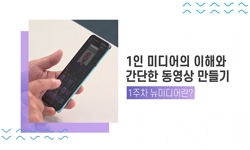This study was designed to study the effect of trust in tourism information obtained through social media on the tourist destination image and purchase intention formed according to the perceived risk that may occur in a tourist destination. In other ...
http://chineseinput.net/에서 pinyin(병음)방식으로 중국어를 변환할 수 있습니다.
변환된 중국어를 복사하여 사용하시면 됩니다.
- 中文 을 입력하시려면 zhongwen을 입력하시고 space를누르시면됩니다.
- 北京 을 입력하시려면 beijing을 입력하시고 space를 누르시면 됩니다.

소셜미디어 관광정보의 신뢰가 지각된 위험과 관광지이미지 및 구매의도에 미치는 영향 = The Effects of Trust in Social Media Tourism Information on Perceived Risk, Tourist Destination Image and Purchase Intention
한글로보기https://www.riss.kr/link?id=A109126740
- 저자
- 발행기관
- 학술지명
- 권호사항
-
발행연도
2024
-
작성언어
Korean
- 주제어
-
등재정보
KCI등재
-
자료형태
학술저널
-
수록면
183-197(15쪽)
- DOI식별코드
- 제공처
-
0
상세조회 -
0
다운로드
부가정보
다국어 초록 (Multilingual Abstract)
This study was designed to study the effect of trust in tourism information obtained through social media on the tourist destination image and purchase intention formed according to the perceived risk that may occur in a tourist destination. In other words, by using social media tourism information to identify visitors' intentions for perceived risks, this study attempted to resolve uncertainty in the tourism industry. A survey was conducted targeting male and female adults aged 20 or older who had overseas travel experience, and a total of 241 copies were secured. The verification results are as follows. First, a confirmatory factor analysis was conducted, and eight factors (social media tourism information, perceived risk (physical, financial, psychological, social), tourist destination image, and purchase intention. Second, it was found that social media tourism information affects all four perceived risks. Among the perceived risks, physical risk, financial risk, and psychological risk affect the image of the tourist destination, and the influence of physical risk, psychological risk, and social risk on purchase intention was confirmed. These results indicate that visitors recognize perceived risks through social media tourism information and consider tourism destinations accordingly. Therefore, managers of the tourism industry need to identify the influence of social media and establish strategies to cope with the perceived risks.
동일학술지(권/호) 다른 논문
-
상사의 공감 리더십이 직무만족도 및 조직몰입에 미치는 영향-고용형태의 조절효과
- 한국외식산업학회
- 김영중
- 2024
- KCI등재
-
향토음식(Local food)의 지식과 환경관심도가 소비자 태도와 구매의도에 미치는 영향
- 한국외식산업학회
- 조유진
- 2024
- KCI등재
-
식생활 라이프스타일에 따른 케어푸드 선택속성이 고객만족과 재구매의도에 미치는 영향
- 한국외식산업학회
- 박순애
- 2024
- KCI등재
-
포스트코로나 시대 관광 노스탤지어와 보복여행 욕구가 해외여행의도에 미치는 영향-ETPB모델을 중심으로
- 한국외식산업학회
- 이승훈
- 2024
- KCI등재




 KCI
KCI DBpia
DBpia






